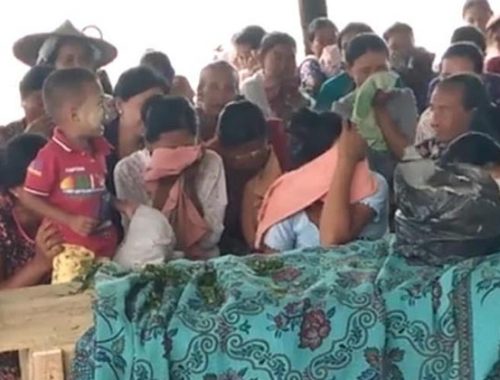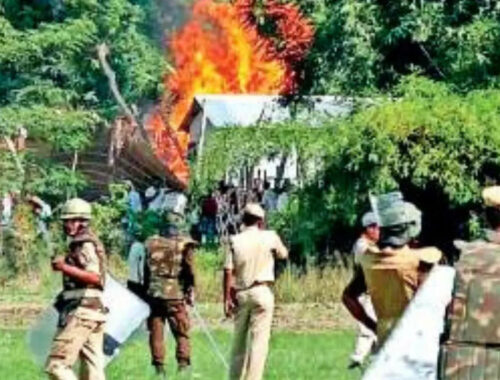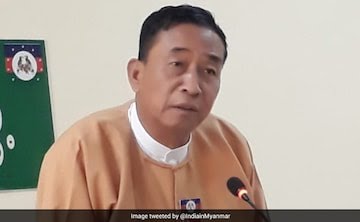The Ministry of Home Affairs on Friday said guidelines for the National Register of Citizens (NRC) were yet to be drafted but Citizenship of India may be proved by giving any document relating to date of birth or place of birth or both.
“Such a list is likely to include a lot of common documents to ensure that no Indian citizen is unduly harassed or put to inconvenience,” a Ministry spokesperson said.
Indian citizens do not have to prove any ancestry by presenting documents such as identity card, birth certificate etc of parents/grandparents dating back to pre-1971 situation. March 24, 1971 was the cut-off date for Assam’s NRC conducted under the supervision of the Supreme Court as per the Assam Accord, 1985, and was not related to countrywide citizens’ register. According to the Citizenship Act, anyone born on or after 26 January, 1950, but before 1 July, 1987 was an Indian citizen by birth. “The people born between these years are naturalised citizens by now and would be having some kind of document as a proof of their birth here,” the spokesperson said.
Nineteen lakh people, out of 3.29 crore applicants, were excluded from Assam’s NRC that was published on August 31.
The spokesperson said, “For illiterate citizens, who may not have any documents, the authorities may allow them to produce witnesses or local proofs supported by members of the community. A well laid out procedure will be followed.”
A senior Home Ministry official said each application received online under the Citizenship (Amendment) Act (CAA) would be checked and enquired by officials, as the final decision to grant citizenship rested with the Centre. There would be no time restriction to apply under the CAA. Though the rules for the CAA were yet to be framed, it could not override legislation passed by Parliament on December 11, which did not have any provision of fixing a window to apply.
The CAA allows citizenship on the basis of religion to undocumented non-Muslim communities from Pakistan, Afghanistan and Bangladesh who entered India on or before December 31, 2014. There are apprehensions that the Act, followed by a country-wide NRC would benefit non-Muslims excluded from the citizens’ register, while excluded Muslims will have to prove their citizenship.
On being asked as to how the authorities would prove that these people fled the three countries due to religious persecution, the official said, “that is a cause of concern. There is no such proof, we will see.”
NPR to be compiled next year
No separate legislation was required to compile the NRC, as the provision existed under the Citizenship Act when it was amended in December 2004. The NRC’s precursor- the National Population Register (NPR) would be compiled next year, he said.
The third phase of the NPR, a register of usual residents of the country who had been staying at a particular place for the past six months, would be conducted in September 2020 along with the Census exercise. The NPR database would contain demographic as well as biometric particulars. The exercise was conducted in two phases, in 2010 and 2015. It was mandatory for every usual resident of India to register with the NPR.
The NRC was the next step of the NPR. After the NRC ended, citizens would be given unique cards, the official said.
The State governments, he noted, have no powers to reject the implementation of the CAA, the NPR or the NRC. Chief Ministers of West Bengal, Punjab, Kerala, Madhya Pradesh and Chhattisgarh have announced that the CAA was “unconstitutional” and had no place in their States. The West Bengal government stopped the NPR exercise through an order this week.
“The power to grant citizenship to district collectors has been delegated by the Centre. The CAA changes the provision and it can be vested back with Central authorities like the Foreigners Regional Registration Office (FRRO). This is not to minimise the role of the district collectors but the process is anyway online,” the official said. (The Hindu)




